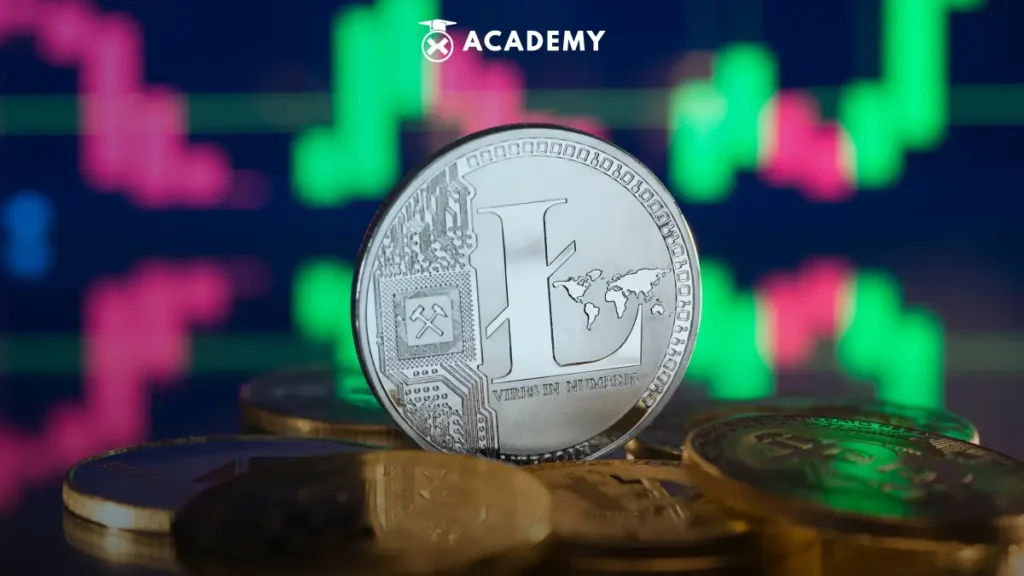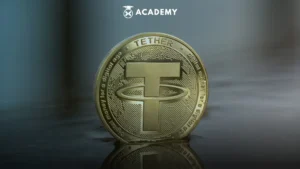Crypto assets are digital assets whose value is determined by the market, such as stocks and bonds, and can be traded on various crypto exchanges.
Crypto assets have advantages in terms of security and anonymity due to their decentralized nature, making crypto assets an attractive and long-term investment choice for investors looking for portfolio diversification.
This crypto asset is created and transacted using a technology known as “Blockchain” and uses cryptographic technology to secure transactions and maintain the privacy of its users.
History and Evolution of Crypto Assets
Crypto assets were first introduced in 2008 by a person or group using the pseudonym Satoshi Nakamoto.
The Bitcoin White Paper entitled “Bitcoin: A Peer-to-Peer Electronic Cash System” explains how Bitcoin works based on Blockchain technology.
Since then, the crypto asset community has multiplied, and today there are thousands of different types of crypto assets on the market.
Types of Crypto Assets
Crypto assets that exist today are very diverse. Each crypto asset has different characteristics, working methods, purposes, and uses.
Here are some examples of the most popular crypto assets and their explanations:
1. Bitcoins (BTC)

Bitcoin is a crypto asset that was introduced in 2008 by Satoshi Nakamoto.
This crypto asset is highly valued because it has a limited amount of only 21 million Bitcoins issued.
Bitcoin uses Blockchain proof-of-work (PoW) technology to validate, secure, and guarantee irreversible transactions.
Proof-of-work (PoW) within the Bitcoin network helps ensure that every transaction is processed fairly and securely.
This can ensure that the network remains decentralized and prevent any individual or group from having control over the system.
2. Ethereum (ETH)

Ethereum is a crypto asset released in 2015 by Vitalik Buterin.
Ethereum uses the same Blockchain technology as Bitcoin but has more advanced features, such as smart contracts.
A smart contract is a digital contract that can be executed automatically without third-party intervention.
Ethereum uses Blockchain Proof-of-Work (PoW) technology to confirm transactions and add new blocks to its network.
Currently, Ethereum is in the process of migrating from Proof-of-Work (PoW) to Proof-of-Stake (PoS), which is referred to as Ethereum 2.0.
Proof-of-Stake (PoS) is a consensus system that allows network users to lock (“stake”) their assets in the network and become validators.
3. Litecoin (LTC)

Litecoin was developed in 2011 by Charlie Lee, a former Google employee.
Litecoin (LTC) is a crypto asset similar to Bitcoin but with some differences in technical design.
Litecoin is designed to be “digital gold” and provides a faster and more efficient solution than Bitcoin.
Litecoin uses the same Blockchain technology as Bitcoin but has a faster confirmation time and more significant amounts.
4. Tether (USDT)

Tether was introduced in 2014 by Brock Pierce, Reeve Collins, and Craig Sellars.
Tether holds funds tied to a dollar rate to keep the value stable and uses a mechanism known as PEG.
Tether is used for trading and stabilizing prices in the crypto market by reducing the risk of volatility.
How Crypto Transactions Work

Then, how do Crypto Assets work? The following is a description of the stages of how crypto assets work:
1. User A makes a transaction request.
2. The system, as a block, records the transaction data (Blocks are data units that store information regarding transactions on the Blockchain network).
3. Then, the block will be propagated into the network for verification.
4. The transaction is considered valid, and the system approves the block.
5. After that, the new block will be added to the other Blockchain.
6. Transaction complete, recipient B accepts transaction from user A.
Crypto asset transactions are carried out by a peer-to-peer network that uses Blockchain technology.
Blockchain is a ledger or digital ledger that records all transactions made on the network.
Every transaction made must be approved by several users who are members of the network before being added to the Blockchain.
Use of Crypto Assets
Currently, crypto assets are used in various daily economic activities. Some of them include the following:
1. DApss Platforms
Crypto assets can be used as economic tokens in the DApps (Decentralized Applications) platform to gain access to certain features or services.
2. Investment and Trade
Crypto assets can be used as investment instruments because their value can increase.
Investing in crypto assets is done by buying and storing crypto assets in digital wallets or trading through exchange platforms.
Crypto asset investment offers high-profit potential but comes with high risks as well.
This is due to the volatile price of crypto assets, which can change drastically quickly.
3. Transfer of Assets Without Area and Time Limits
Crypto assets can be transferred without region and time limits. The reason is that crypto assets are transmitted through a decentralized blockchain network.
Crypto asset transactions can be done anytime and anywhere, and the most important thing is the availability of an internet connection.
Because there are no third parties involved in the transaction process of this crypto asset, the fees required are also lower than traditional transfer methods.
The crypto asset transaction process is also considered faster because it does not require verification from a third party.
Crypto Assets in Indonesia

Indonesia is a country that has rapid economic growth and a large population, thus attracting the attention of the crypto asset market.
In 2017, the Central Bank of Indonesia (Bank Indonesia) stated that they consider crypto assets as a form of commodity, not as a means of payment or digital currency (cryptocurrency).
However, the Indonesian government has also expressed interest in the potential of Blockchain technology.
They also explored using Blockchain technology for various purposes, such as digital identity and assets.
Interest in crypto among Indonesia’s young, tech-savvy population is relatively high.
The country’s large population and rapidly growing economy make Indonesia an attractive crypto adoption and use market.
Future Crypto Assets
The prospects for crypto assets are still uncertain. However, some analysts claim that the crypto asset will become a global currency widely used in various transactions.
In a Bankless Podcast interview, Jack Dorsey, CEO of payment company Block (formerly Square) and CEO of Twitter from 2015 to November 2021, expressed his belief that Bitcoin will become a universal internet currency.
With technology constantly evolving and increasing support from governments and companies, the future outlook for crypto assets is expected to remain positive.
Conclusion:
1. Crypto assets are a form of digital assets that are created and transacted using a technology called “Blockchain.”
2. Satoshi Nakamoto introduced crypto assets in 2008.
3. Crypto assets are diverse and have different characteristics, purposes, and working methods.
In the following material, you will study and discuss basic learning material regarding the technology that underlies crypto assets, namely “Blockchain Technology.”






